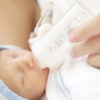“An apple a day keeps the doctor away, but brushing your teeth twice a day may keep the dentist at bay.”
-Dr. Clark
Even in the times of COVID dental care is still super important for your child’s overall health and well-being and February is National Children’s Dental Health Month!
Did you know dental caries (or cavities) are one of the most common chronic diseases of childhood (5x more common than asthma)? 37% of children ages 2-8 with primary teeth, 21% of children ages 6-11 with permanent teeth, and 58% of adolescents ages 12-19 will have dental caries.
Dental caries can cause tooth/mouth pain that can affect children’s ability to chew and get the nutrition they need, increase their risk of infection, lead to poor sleep quality, and affect their overall self-esteem. There is also growing evidence that poor oral health can impact other chronic diseases such as cardiovascular disease, lung diseases, and diabetes.
The best way to avoid these problems and others is prevention of dental caries before they start. Here are some tips and tricks on the best ways to accomplish this:
Routine Dental Care
- The American Academy of Pediatrics (AAP) and the American Dental Association (ADA) recommend all children should see a dentist and establish a dental home by their first birthday or within 6 months of getting their first tooth, whichever is earliest.
- Prior to teeth erupting, use a soft wet cloth to clean baby’s gums after feedings
- Once teeth erupt, the AAP and ADA recommend brushing teeth twice a day for 2 minutes with a fluoride containing toothpaste. For children under 3 – use a small smear (no larger than a grain of rice) of toothpaste. For children over 3 – use a pea sized amount of toothpaste. Help children brush their teeth until they are able to do so themselves, usually around 8-9 years of age.
- Tip – Some parents tell me teeth brushing time is a battle with their younger children, try making it as fun as possible! Get their favorite cartoon character on the toothbrush, play games while getting ready to brush their teeth, sing songs while brushing for 2 minutes. Encourage younger children to “practice” brushing their own teeth with your supervision as well.
- Once able, floss teeth once daily.
- After establishing a dental home, visit your dentist every 6 months for routine checkups and cleanings, or as directed by your dentist.
Preventing Dental Caries is Everyone’s Responsibility
- Your dental health is equally important in caring for your baby’s dental health. The most common source of transmission of dental cary causing bacteria is from the primary caregiver’s mouth.
- Visit your dentist regularly for routine dental checkups and cleanings and brush your teeth twice a day (this also helps set a good example for your children!).
- Avoid sharing cups, utensils, and putting your baby’s pacifier in your mouth.
- Avoid putting your baby to bed or down for naptime with a bottle in their mouth.
- Limit sugar exposure and foods high in carbohydrates as much as possible as these increase dental caries risk. Instead of sugary drinks, try giving your child water or plain milk. Instead of sugary snacks, try foods such as fresh fruits and vegetables, cheese, nuts, popcorn, or pretzels.
- Avoid drinks other than water in a sippy cup between meals.
- As your child becomes older and starts engaging in sports and other physical activities, discuss prevention of oral injuries with your provider.
- As your child gets older and matures, start teaching them to care for their own oral health – one day it will be only their responsibility!
What happens at Your Child’s First Dental Visit?
It may seem odd to take your baby to the dentist when they only have a few teeth, however as discussed above starting preventative care early will set your child up for success in maintaining good oral hygiene. At your first visit your dentist will provide a comprehensive evaluation of your baby’s mouth, gums, and teeth and assess their overall risk for disease. Your dentist will clean your baby’s teeth and provide a cary-preventing fluoride varnish if indicated. Your dentist will also provide anticipatory guidance on how to care for your baby’s teeth at home.
- Tip – Any dentist will be able to provide these services for your child, but a pediatric dentist will be more experienced treating children and may have fun toys/distractions in their offices and exam rooms to help with any anxiety your child may have.
These are just a few of the basics about dental care. Each of your child’s well visits with us will also include a general inspection of their teeth. Our office can also recommend and provide fluoride varnishes if needed. Feel free to ask us any questions you may have regarding your child’s dental health as well!
Resources:

